Related Research Articles
Creative writing is any writing that goes outside the bounds of normal professional, journalistic, academic, or technical forms of literature, typically identified by an emphasis on narrative craft, character development, and the use of literary tropes or with various traditions of poetry and poetics. Due to the looseness of the definition, it is possible for writing such as feature stories to be considered creative writing, even though it falls under journalism, because the content of features is specifically focused on narrative and character development. Both fictional and non-fictional works fall into this category, including such forms as novels, biographies, short stories, and poems. In the academic setting, creative writing is typically separated into fiction and poetry classes, with a focus on writing in an original style, as opposed to imitating pre-existing genres such as crime or horror. Writing for the screen and stage—screenwriting and playwriting—are often taught separately, but fit under the creative writing category as well.
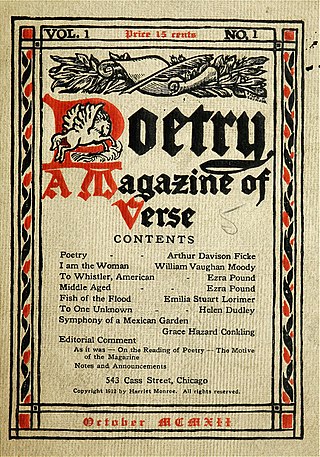
A literary magazine is a periodical devoted to literature in a broad sense. Literary magazines usually publish short stories, poetry, and essays, along with literary criticism, book reviews, biographical profiles of authors, interviews and letters. Literary magazines are often called literary journals, or little magazines, terms intended to contrast them with larger, commercial magazines.
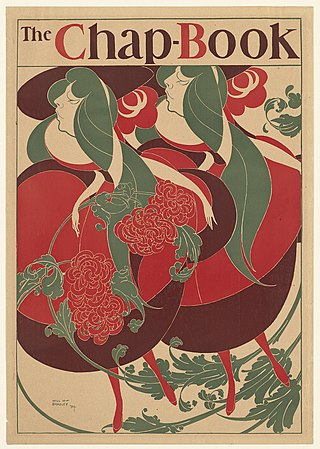
In the United States, a little magazine is a magazine genre consisting of "artistic work which for reasons of commercial expediency is not acceptable to the money-minded periodicals or presses", according to a 1942 study by Frederick J. Hoffman, a professor of English. While George Plimpton disagreed with the diminutive connotations of "little", the name "little magazine" is widely accepted for such magazines. A little magazine is not necessarily a literary magazine, because while the majority of such magazines are literary in nature, containing poetry and fiction, a significant proportion of such magazines are not. Some have encompassed the full range of the arts, and others have grown from zine roots.

Lance Olsen is an American writer known for his experimental, lyrical, fragmentary, cross-genre narratives that question the limits of historical knowledge.
AGNI is an American literary magazine founded in 1972 that publishes poetry, fiction, essays, reviews, interviews, and artwork twice a year in print and weekly online from its home at Boston University. Its coeditors are Sven Birkerts and William Pierce.

Epoch is a triannual American literary magazine founded in 1947 and published by Cornell University. It has published well-known authors and award-winning work including stories reprinted in The Best American Short Stories series and poems later included in The Best American Poetry series. It publishes fiction, poetry, essays, graphic art, and sometimes cartoons and screenplays, but no literary criticism or book reviews.
Crazyhorse is an American magazine that publishes fiction, poetry, and essays. Since 1960, Crazyhorse has published many of the finest voices in literature, including John Updike, Raymond Carver, Jorie Graham, John Ashbery, Robert Bly, Ha Jin, Lee K. Abbott, Philip F. Deaver, Stacie Cassarino, W. P. Kinsella, Richard Wilbur, James Wright, Carolyn Forché, Charles Simic, Charles Wright, Billy Collins, Galway Kinnell, James Tate, and Franz Wright.

Cole Swensen is an American poet, translator, editor, copywriter, and professor. Swensen was awarded a 2006 Guggenheim Fellowship and is the author of more than ten poetry collections and as many translations of works from the French. She received her B.A. and M.A. from San Francisco State University and a Ph.D. in Comparative Literature from the University of California, Santa Cruz, and served as the Director of the Creative Writing Program at the University of Denver. She taught at the Iowa Writers' Workshop at the University of Iowa until 2012 when she joined the faculty of Brown University's Literary Arts Program.
Jeanne Leiby was an American teacher, fiction writer and literary magazine editor. Leiby's short stories were published in several U.S. literary journals, including Fiction, Indiana Review, The Greensboro Review, and New Orleans Review. In 2000, she won the Poets and Writers Writer Exchange. Her first collection of short stories, Downriver, was published by Carolina Wren Press as the 2006 winner of the Doris Bakwin prize. Leiby also served as fiction editor of Black Warrior Review and as the Editor in Chief of the Florida Review (2004–2007). In Spring 2008, she took over as editor of The Southern Review at LSU in Baton Rouge, Louisiana.
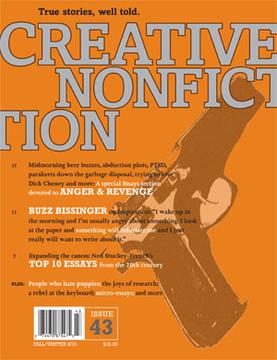
Creative Nonfiction is a literary magazine based in Pittsburgh, Pennsylvania, United States. The journal was founded by Lee Gutkind in 1993, making it the first literary magazine to publish, exclusively and on a regular basis, high quality nonfiction prose. In Spring 2010, Creative Nonfiction evolved from journal to magazine format with the addition of new sections such as writer profiles and essays on the craft of writing, as well as updates on developments in the literary nonfiction scene. As of 2023, the magazine has ceased publication, with no information provided about when or if they will resume publication.
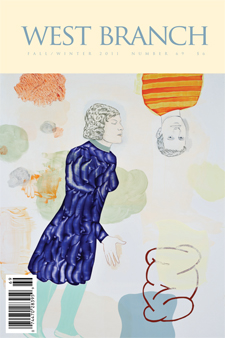
West Branch is an American literary magazine based at Bucknell University in Lewisburg, Pennsylvania, published by the Stadler Center for Poetry. The magazine, which was founded in 1977, publishes poetry, fiction, creative nonfiction, and literary criticism.

Peter Selgin is an American novelist, short story writer, playwright, essayist, editor, and illustrator. Selgin is Associate Professor of English at Georgia College & State University in Milledgeville, Georgia.
Post Road is an American literary magazine established in 1999 that publishes fiction, nonfiction, criticism, poetry, art, and theatre. In addition to these traditional genres, the magazine also features a "Recommendations" section in which established writers suggest their favorite work and an "Etcetera" section which presents literary curiosities such as letters, reprints, and interviews. Post Road is published biannually by the Department of English at Boston College.

The North American Review(NAR) was the first literary magazine in the United States. It was founded in Boston in 1815 by journalist Nathan Hale and others. It was published continuously until 1940, after which it was inactive until revived at Cornell College in Iowa under Robert Dana in 1964. Since 1968, the University of Northern Iowa in Cedar Falls has been home to the publication. Nineteenth-century archives are freely available via Cornell University's Making of America.
Joseph Geha, professor-emeritus at Iowa State University, is the author of two books, Through and Through: Toledo Stories, one of the first books of modern Arab-American fiction, and Lebanese Blonde, a novel. He has also published poems, plays, essays and short fiction in periodicals and anthologies such as Esquire, Growing Up Ethnic in America, and The New York Times.
Rae Bryant is an American writer most known for experimental prose styles with a focus on magic realism, surrealism, satire and postfeminism. Her story collection, The Indefinite State of Imaginary Morals, was nominated for the Hemingway Foundation/PEN Award and Pushcart Prize.
Sarah Einstein is an American essayist and writer of memoir and literary nonfiction. She is a recipient of the Association of Writers & Writing Programs Award for Creative Nonfiction, and the Pushcart Prize.
Michael Derrick Hudson is an American poet and librarian. Hudson is employed at the Genealogy Center of the Allen County Public Library in Fort Wayne where his job includes encoding articles for the Periodical Source Index (PERSI).

Meg Johnson is an American poet and lecturer. Her poems have appeared in numerous literary magazines, including Midwestern Gothic, Slipstream Magazine, Word Riot, Hobart, and many others. Her first collection of poems, Inappropriate Sleepover, was released in 2014, her second collection, The Crimes of Clara Turlington, was released in December 2015., and her third book, Without: Body, Name, Country is due to release in September 2020. She is also the current editor of the Dressing Room Poetry Journal.
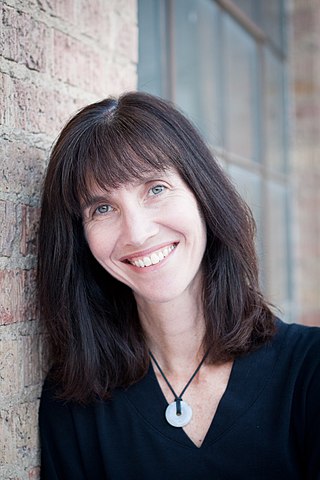
Jennifer Ann Sinor is an American author and literary nonfiction writer and professor. She primarily writes memoir, research-based creative nonfiction, and personal essays that experiment with non-linear forms. Sinor's work focuses on the body, the ineffable, and the ordinary in our lives. It is often non-linear in form and relies on association, juxtaposition, and speculative leaps.